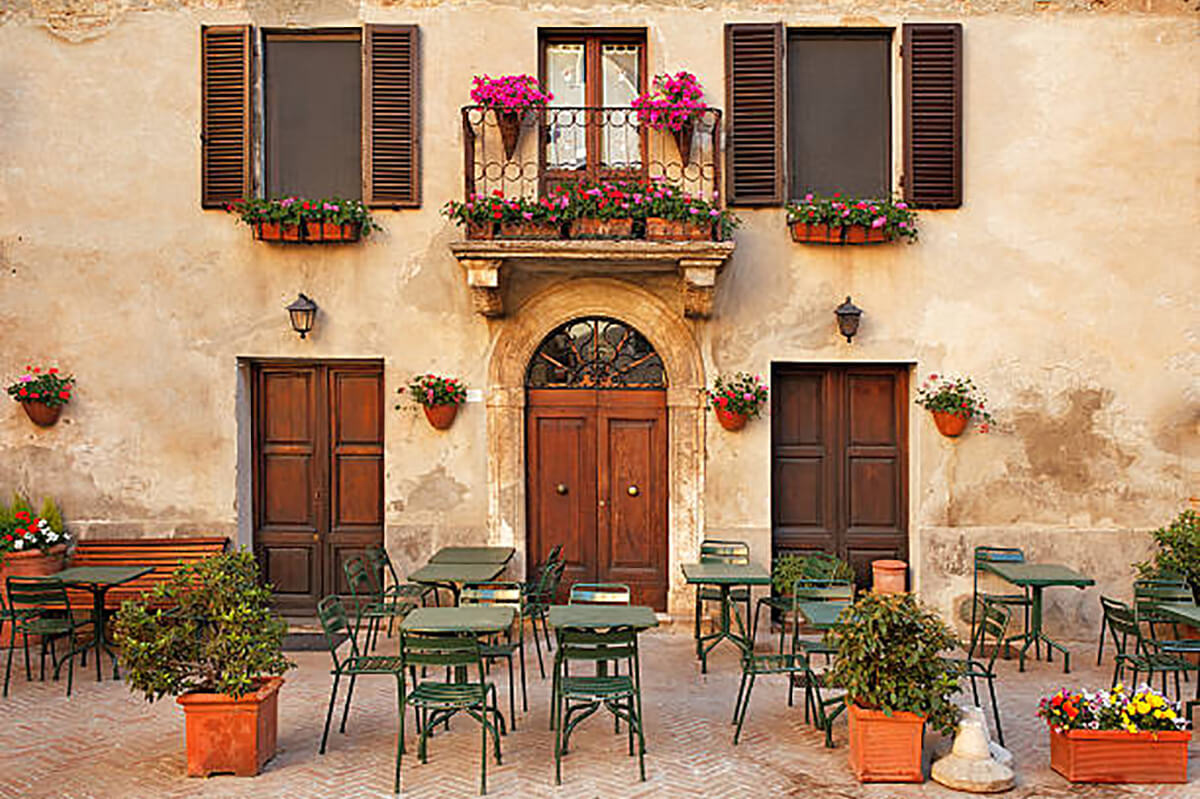Italy, with its rich history, culture, and passion for life, has an endless supply of proverbs and sayings that reflect the Italian worldview. From the bustling streets of Rome to the sun-kissed hills of Tuscany, Italians have a unique way of capturing life’s deepest truths in just a few words. These sayings, passed down through generations, offer more than just linguistic beauty; they embody timeless lessons about love, work, family, and the Italian spirit itself.
Let's dive into some of the most popular Italian proverbs and sayings, explore their meanings, and discover how these pearls of wisdom continue to shape Italian culture today.
1. "Chi va piano va sano e va lontano."
Translation: "He who goes slowly, goes safely and goes far."
This proverb is all about the value of patience and steady progress. It reminds us that taking your time, rather than rushing through life, will lead to better results in the long run. In Italy, where la dolce vita (the sweet life) is a celebrated philosophy, this saying reflects the importance of savoring each moment. It’s a gentle nudge to not get caught up in the rush of modern life, but instead to focus on thoughtful, deliberate action.
Lesson: Patience and consistency often lead to greater success than haste.
2. "A caval donato non si guarda in bocca."
Translation: "Don’t look a gift horse in the mouth."
This proverb is about being grateful for what you receive, especially when it's given freely. The saying comes from the practice of checking a horse's teeth to determine its age and value, so to "look in a gift horse’s mouth" would mean questioning the value of a gift. Italians use this saying to remind people to accept gifts, favors, or opportunities graciously, without looking for flaws or trying to evaluate their worth too critically.
Lesson: Be thankful for what you’re given, and don’t take good things for granted.
3. "Dove c’è gusto, non c’è perdenza."
Translation: "Where there’s taste, there’s no loss."
A beloved expression in the food-centric culture of Italy, this proverb emphasizes the joy and fulfillment found in doing things that are pleasurable or enjoyable. It suggests that indulging in life's pleasures—whether it’s savoring a delicious meal, enjoying company, or pursuing a passion—is never a waste. In fact, these moments are considered invaluable, especially in a culture that deeply values the concept of buona cucina (good food), buona compagnia (good company), and buona vita (good life).
Lesson: Enjoy life’s pleasures without guilt; they enrich the soul.
4. "L’abito non fa il monaco."
Translation: "The habit doesn’t make the monk."
This proverb teaches that appearances can be deceiving. It’s a reminder not to judge someone—or something—based solely on outward appearances. Just because someone is dressed in a particular way or presents themselves in a certain manner doesn’t mean they possess the qualities we might expect. The saying reflects Italy’s deep appreciation for substance over style, an idea that runs through everything from fashion to relationships.
Lesson: Don’t judge a book by its cover; what’s inside matters more.
5. "Meglio soli che mal accompagnati."
Translation: "Better alone than in bad company."
This Italian proverb is a timeless piece of advice, particularly relevant in matters of relationships and friendships. It suggests that it’s better to be alone than to surround yourself with people who are negative, toxic, or not in alignment with your values. In a culture that places such a strong emphasis on family and community, this saying still holds deep meaning—it’s a reminder that quality over quantity is key when it comes to relationships.
Lesson: Choose your companions wisely; solitude is preferable to bad company.
6. "Tra il dire e il fare c’è di mezzo il mare."
Translation: "Between saying and doing, there’s the sea."
This Italian proverb highlights the gap that often exists between good intentions and real actions. It reflects the idea that it’s easy to talk about something, but actually carrying it out can be much harder. Italians use this saying to emphasize the importance of following through on promises and not just making empty statements. It’s a nudge to move beyond talk and take action.
Lesson: It’s not enough to just talk; action is what counts.
7. "Tanto va la gatta al lardo che ci lascia lo zampino."
Translation: "The cat goes to the lard so much that it leaves its paw."
This colorful Italian proverb suggests that if you keep pushing your luck, you’re bound to face the consequences. It’s a reminder not to test fate too often, as it’s inevitable that your actions will catch up with you eventually. The image of a cat repeatedly going to the lard (likely to steal some) and leaving its paw print is a playful, yet cautionary, metaphor for getting caught in the act.
Lesson: Pushing your luck has consequences—don’t overstep your boundaries.
8. "Chi trova un amico, trova un tesoro."
Translation: "He who finds a friend, finds a treasure."
This proverb reflects the deeply held Italian belief that true friendship is one of life’s greatest gifts. In a culture where family and relationships are at the center of life, this saying emphasizes the immense value of loyal, supportive friends. To Italians, friendship is not just about sharing good times, but about mutual respect, trust, and support through both the highs and lows of life.
Lesson: True friends are invaluable and worth more than any material possession.
9. "Non tutti i mali vengono per nuocere."
Translation: "Not all bad things come to harm."
This is a comforting proverb often used when faced with difficult situations. It suggests that even in adversity, there can be hidden blessings. What may seem like a misfortune at first could ultimately lead to a positive outcome or a valuable lesson. It’s a reminder to stay optimistic and trust that things will work out in the end, even when the road ahead seems tough.
Lesson: Sometimes bad things happen for reasons that may not be clear at first, but they can lead to positive change.
10. "A casa si torna sempre."
Translation: "You always return home."
This proverb is a deeply emotional one for Italians, speaking to the importance of family and the sense of belonging that comes with returning to one's roots. Whether you leave for a big city, travel abroad, or experience life’s ups and downs, there’s always a deep, unbreakable connection to home. It’s a reminder that, no matter where life takes you, your family and your origins are a constant source of comfort and love.
Lesson: No matter where life takes you, your home and family will always be there.
The Power of Italian Proverbs
Italian proverbs are more than just words; they are expressions of centuries of culture, tradition, and wisdom. From matters of the heart to practical life advice, these sayings offer insight into the Italian approach to life—a blend of passion, patience, and a love for the simple joys. Whether you’re traveling through Italy or just learning the language, these proverbs are a great way to connect with the culture and see the world through an Italian lens.
So next time you find yourself in a tricky situation, or just want a piece of advice, consider these timeless Italian sayings. They may offer just the perspective you need to navigate life with grace, humor, and wisdom.
La vita è bella! (Life is beautiful!)


